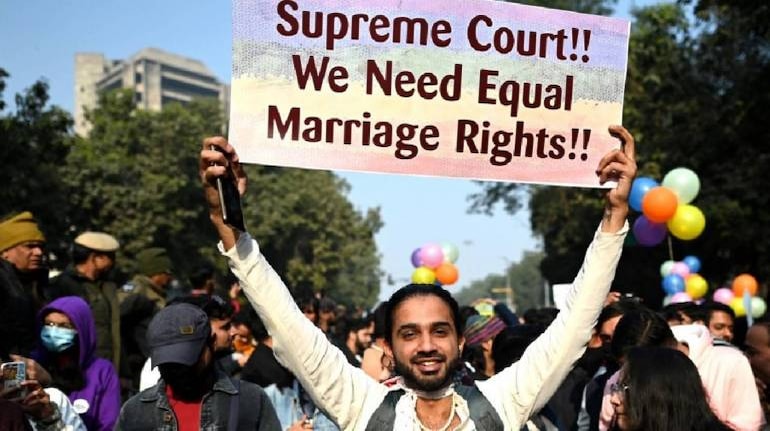



Fourteen years after the case of Naz Foundation (2009), the LGBTQ community is again on the legal radar of the Supreme Court. The case of Supriyo @ Supriya Chakraborty and Anr. v Union of India, and other petitions, presently pending before the apex court, have sought legal recognition for same sex marriage in India. The case has not only drawn public attention, but has also brought out public ire. Much has been written about the rights of the community members to marry under the law. However, those who oppose such a prayer of the community are missing the woods for the tree.
Not About Culture, History, Family, Society
The issues in the present case are not about our “culture”, or “history”, or about threat to “the family structure”, or threat to the “society” at large. The petitioners have raised seminal constitutional issues which need to be debated, discussed and decided by the Apex Court. These issues are:
Those who argue that homosexuality is against our “culture” need to read our Puranic stories. In ancient India, sexual fluidity was accepted. Devdutt Pattanaik, in his book Shikhandi, dwells into this subject.
Even today, the transgender community members play an important role in our social life — at marriages and birth of a child. They are progressively being brought into the mainstream of our society: in the political, educational and economic fields.
False Narratives
On the other hand, those who claim that same sex marriage would destroy the “marriage institution” only need to look at the other countries where this phenomenon is allowed. Neither in Sweden, nor in parts of United States, where same sex marriage is allowed, has it threatened the institution of marriage.
Similarly, those who prophesy that the members of this community would destroy the fabric of the society, need to only remember that homosexuality has existed since the Paleolithic Age. It continues to be a minority even now. A minority can never threaten the existence of the majority. All these are false narratives which should be brushed aside.
A Truly Uniform Civil Code Needed
Recently, the Constitutional Bench has opined that it would not like to go into the other issues, such as adoption and inheritance etc. For, these issues are covered by myriad Personal Laws. This view is certainly justified.
However, considering the fact that the Government is envisaging a Uniform Civil Code for the country, perhaps the Code would grant substantial rights of adoption and inheritance, etc. to the members of the LGBTQ community. This is more so, as India is a signatory to the Universal Declaration of Human rights, which recognises the right to marriage and family as human rights.
The need of the hour, in a postmodern world, is to move forward on the journey of liberalism. We cannot afford to hold on to antiquated ideas of sex and gender, or marriage and family. We need to remind ourselves that our civilisation values two important principles: “to live, and let live”, and Vasudhaiva Kutumbakam – the world is a single family. Moreover, the Constitution of India mandates a peaceful social revolution in order to place India amongst the liberal democracies of the world.
Justice RS Chauhan (Retd.) was Chief Justice of the Telangana and Uttarakhand High Courts. Views are personal and do not represent the stand of this publication.
Discover the latest Business News, Sensex, and Nifty updates. Obtain Personal Finance insights, tax queries, and expert opinions on Moneycontrol or download the Moneycontrol App to stay updated!
Find the best of Al News in one place, specially curated for you every weekend.
Stay on top of the latest tech trends and biggest startup news.